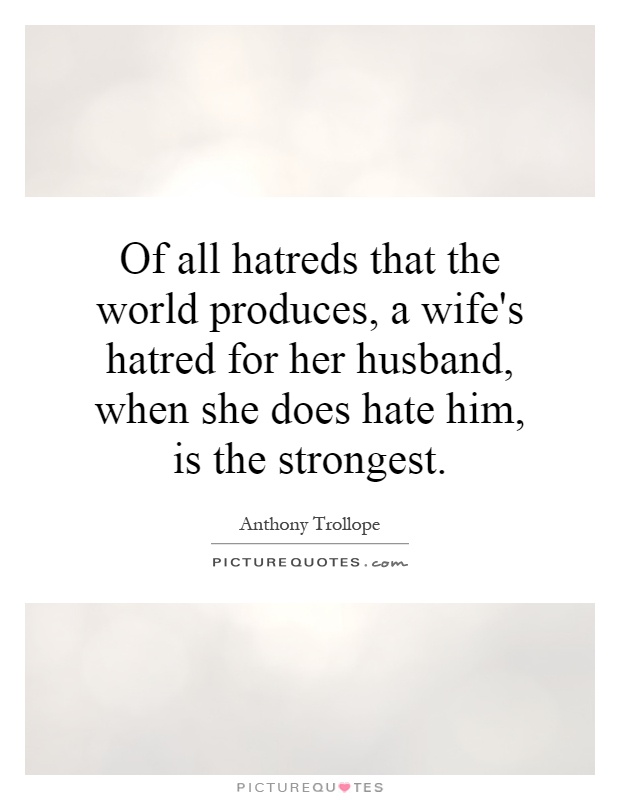Of all hatreds that the world produces, a wife's hatred for her husband, when she does hate him, is the strongest

Of all hatreds that the world produces, a wife's hatred for her husband, when she does hate him, is the strongest
Anthony Trollope, a renowned English novelist of the Victorian era, often explored themes of marriage and relationships in his works. In his novels, Trollope delved into the complexities of human emotions and the dynamics of marriage, shedding light on the various facets of love, hatred, and betrayal. One of the recurring themes in Trollope's works is the intense hatred that can exist between a wife and her husband, when that hatred does manifest.Trollope's statement that "Of all hatreds that the world produces, a wife's hatred for her husband, when she does hate him, is the strongest" reflects the deep emotional bond that exists between spouses and the devastating impact that hatred can have on a marriage. In Trollope's novels, we often see the destructive power of a wife's hatred for her husband, as it can lead to betrayal, infidelity, and ultimately the breakdown of the marriage.
One of the most famous examples of this theme in Trollope's works is found in his novel "He Knew He Was Right". In this novel, the character of Emily Trevelyan harbors a deep-seated hatred for her husband Louis, which stems from his jealousy and controlling behavior. As the novel progresses, Emily's hatred for Louis intensifies, leading her to make choices that ultimately destroy their marriage and have tragic consequences for both of them.
Trollope's exploration of the wife's hatred for her husband is a reflection of the societal norms and expectations of the Victorian era, where marriage was often seen as a sacred institution. The intense emotions and conflicts that arise between spouses in Trollope's works serve as a commentary on the complexities of human relationships and the fragility of love.












 Friendship Quotes
Friendship Quotes Love Quotes
Love Quotes Life Quotes
Life Quotes Funny Quotes
Funny Quotes Motivational Quotes
Motivational Quotes Inspirational Quotes
Inspirational Quotes